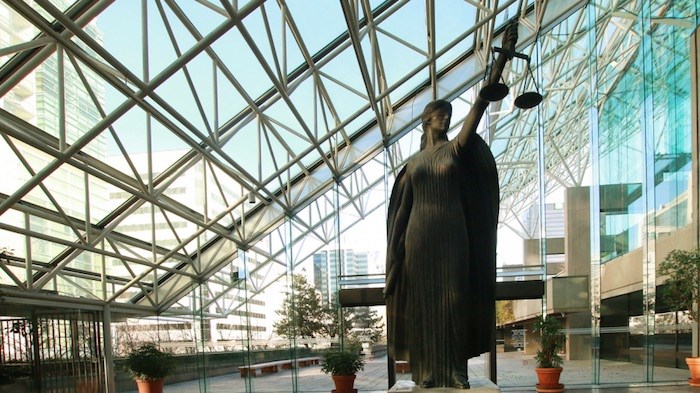B.C. taxpayers would foot the bill if a class-action lawsuit succeeds on allegations the provincial government overstepped its authority with COVID-19 health orders, the judge hearing the case said Dec. 15.
The lawsuit, filed by the Canadian Society for the Advancement of Science in Public Policy and led by Kipling Warner, seeks to challenge and obtain compensation for various measures, mandates and restrictions imposed in response to the pandemic.
Provincial health officer Dr. Bonnie Henry is named as a defendant in the lawsuit.
Since the World Health Organization declared the COVID-19 outbreak a pandemic in March 2020, Henry issued orders designed to reduce the spread of the virus in B.C., including requiring proof of vaccination to enter a number of businesses. The so-called "vaccine passport" was in place in B.C. from September 2021 to April 2022.
Justice David Crerar is hearing arguments on an application for class-action certification. He is listening to applications of various kinds as well as evidence to determine if a class action is a suitable choice for the case.
On Dec. 15, Crerar questioned the plaintiff’s lawyer, Polina Furtula: he asked if the case is about the principle of holding the government to account or about members of the class action getting some money.
“I would imagine the sole primary goal is to condemn the government actions here rather than receiving 500 bucks the taxpayer is paying for,” Crerar said.
The judge called the case “this Boeing 747 class action” and asked if a simple declaration the government was wrong might be more streamlined.
On Dec. 12, Furtula said the challenge revolves around whether or not the pandemic warranted having an emergency declared. She said the provincial legislative conditions for the declaration of an emergency were not met.
She called the resulting response “disproportionate.”
On Thursday, she told the court it requires denunciation.
What the plaintiffs want, she said, is a declaration that the government’s actions were wrong. She said her clients seek both vindication and deterrence for similar things happening in the future.
“Some people are doing it for the principle but some people are doing it for the money,” she told the judge.
“It’s still important to go after wrongdoers,” she said.
Furtula noted B.C. is a so-called opt-out province when it comes to class actions. People can decide they don’t want to be part of the class and would receive no compensation.
“The defence has suggested millions of people would opt out,” Furtula said. “I can’t say I agree with that.”
And, she told Crerar, not all government funds come from taxpayers directly.
Still, Furtula said, the idea of a million people proceeding with their own case is not practical.
“That’s one of the benefits of proceeding through a class vehicle,” she said.
The province is expected to bring various applications to end the proceedings.
One of those could be an abuse of process application, an argument based on the fact that Warner has tried to litigate similar issues in other proceedings.



